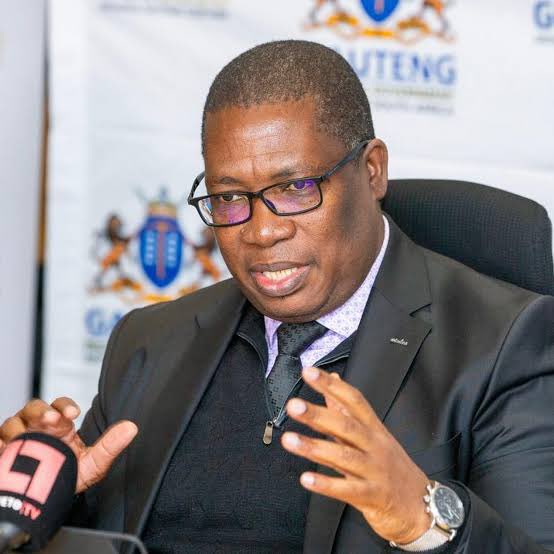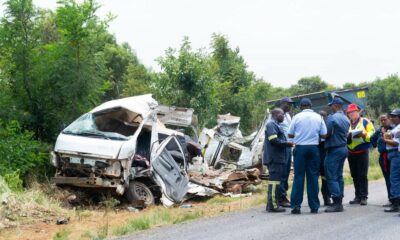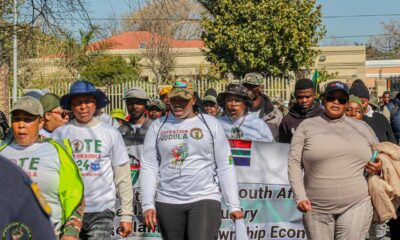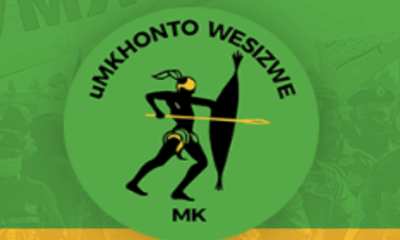News
Lesufi’s Midnight Demolition Plan: Gauteng’s Informal Settlements Face 2AM Crackdown

A premier at war with illegal land grabs
Gauteng Premier Panyaza Lesufi has drawn a hard line on the province’s mushrooming informal settlements, vowing that demolition teams will move in under cover of darkness at 2AM. His message, delivered during a press briefing in Johannesburg, was blunt: “We’re tired of this.”
Lesufi’s frustration stems from the rapid rise of unregulated settlements across Gauteng, with over 400 new sites emerging recently. He singled out a brand-new community in Ennerdale, built “over the weekend” as proof of a growing trend: syndicates and desperate families identifying government land, moving in within 72 hours, and then demanding water, schools, and roads.
“This is not sustainable,” Lesufi said. “We cannot keep diverting resources meant for law-abiding citizens.”
A housing crisis meets migration politics
Gauteng, already South Africa’s most densely populated province, faces a spiraling housing crisis. Service delivery backlogs, from power cuts to sewer overflows, fuel public anger. For years, informal settlements have been both a symptom of inequality and a political hot potato.
Lesufi went further by claiming that many of the new settlements are occupied by undocumented foreign nationals. “That’s the sad part,” he said, insisting that government cannot be expected to provide services to communities that took land illegally.
But critics warn that his midnight demolition plan walks a fine line between governance and populism.
Dudula’s shadow and the road to 2026
Independent analyst Goodenough Mashego believes Lesufi’s rhetoric is shaped by political pressure. Operation Dudula, a grassroots movement known for its hardline stance against migrants, has been gaining traction in Gauteng. Their “Ma bahambe” (“they must go”) slogan has resonated with frustrated citizens, especially in townships where unemployment and crime are high.
“Lesufi sees Operation Dudula’s growing influence and doesn’t want the ANC to lose ground in the 2026 local elections,” Mashego told IOL News. “Instead of using inflammatory language, the ANC is using state machinery to achieve the same goal.”
If Dudula decides to run in 2026, it could peel away disillusioned voters, joining parties like the Patriotic Alliance in pushing anti-immigrant politics to the mainstream.
Not just Gauteng’s fight
Lesufi is not alone. In Johannesburg, IFP councillor and Human Settlements MMC Mlungisi Mabaso has made similar remarks, saying taxpayers’ money should not be used to service informal settlements “dominated by foreign nationals.” A video of him telling residents “that will happen under another MMC, not me” has been circulating widely on social media.
Both leaders argue that resources are overstretched. Behind the scenes, however, allegations swirl of corrupt officials profiting from illegal land grabs by building and renting out shacks in these very settlements.
A high-stakes gamble
Lesufi’s plan, mobilising municipalities and law enforcement for pre-dawn raids, carries high risks. South African law requires authorities to offer alternative accommodation before evictions. Human rights groups are likely to challenge any demolitions that leave families homeless overnight.
At the same time, his promise resonates with communities who feel abandoned by the state, where frustration with crime, unemployment, and immigration is boiling over.
Whether this move is remembered as decisive leadership or political grandstanding will depend on what happens when the bulldozers roll in at 2AM.
{Source: IOL}
Follow Joburg ETC on Facebook, Twitter , TikTok and Instagram
For more News in Johannesburg, visit joburgetc.com


























